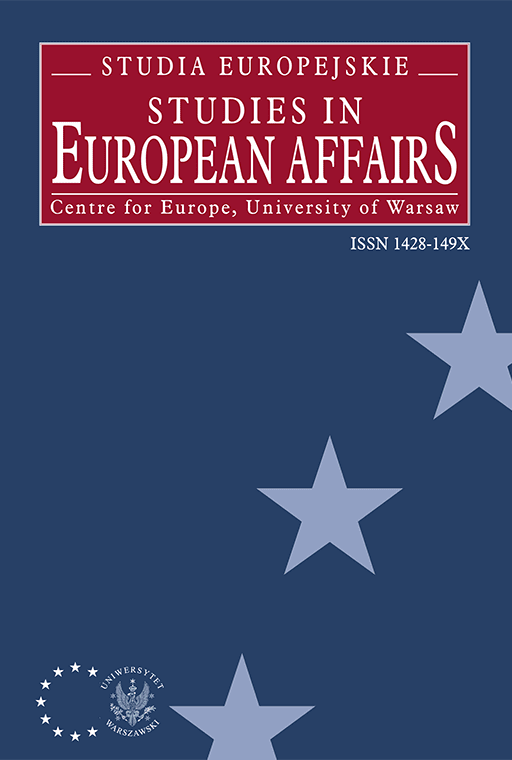
ISSUE: 3/2010
- Volume 55
- Number 3
- 2010
Subscribe NEWSLETTER
Studia Europejskie –
Studies in European Affairs
ISSN: 1428-149X
e-ISSN: 2719-3780
License
Articles published in the journal are under a Creative Commons Attribution – Non Commercial – No Derivatives 4.0 International License
Postanowienia Traktatu Lizbońskiego a zagadnienie deficytu demokracji w Unii Europejskiej
The Lisbon Treaty provisions and the problem of “democracy deficit” in the European Union
Abstract
The problem of the so-called democracy deficit in the European Union (EU) is one of the most important challenges the EU faces at the beginning of the 21st Century. Strengthening democratic legitimacy of the EU and getting its institutions closer to its citizens were among the crucial objectives of the Treaty establishing the Constitution for Europe and of the Treaty of Lisbon. The article deals with several new provisions of the Treaty of Lisbon the Author finds closely related with the problem of democracy deficit in the EU. The Author points out such amendments of the Treaty of Lisbon as establishment of the post of the President of the European Council and that of High Representative of the EU for Foreign Affairs and Security Policy, new definition of the qualified majority voting in the Council, strengthening of political power of the European Parliament, new provisions on democratic rules in the EU or bigger role of national parliaments in the process of European integration and analyses the influence of these amendments on the problem of democracy deficit in the EU. The Author considers whether these new regulations reduce or not the democracy deficit in the EU.
Language: Polish
Pages: 9-30
How to Cite:
Harvard
Kubin, T. (2010) "Postanowienia Traktatu Lizbońskiego a zagadnienie deficytu demokracji w Unii Europejskiej". Studia Europejskie – Studies in European Affairs, 3/2010, pp. 9-30.